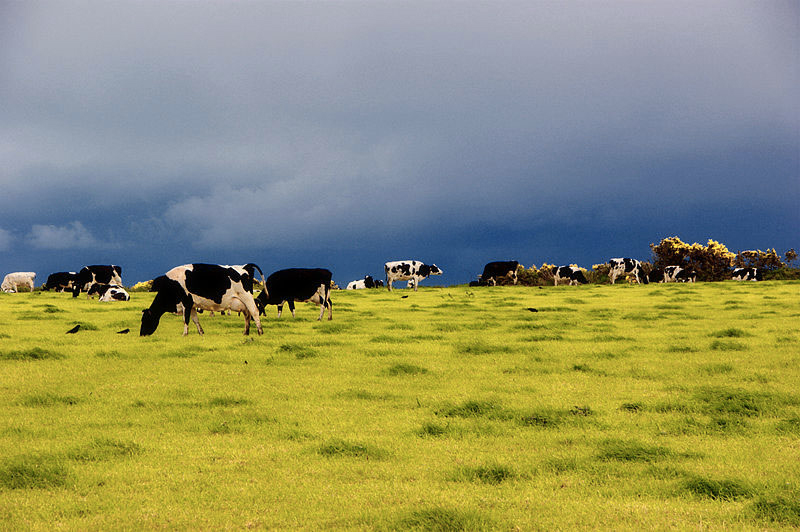
For the first time this month, the number of dairy farmers in England and Wales has dropped below 10,000 'and we can't afford to lose any more', according to NFU dairy board chairman Rob Harrison.
Dairy farmers are feeling frustrated at not getting a sustainable price for their milk, according to Harrison who was addressing the Northern Dairy Conference.
Dairy companies First Milk and Dairy Crest will be cutting the price paid to farmers by January, a reduction of 1 pence per litre and 1.25 pence per litre respectively.
Dairy Crest and First Milk have today announced further price drops from January 2015.
Reflecting on the past 12 months for the industry, Mr Harrison said the frustration demonstrated in recent months was justified with dairy producers struggling to make ends meet.
“I am as angry and disappointed with the recent milk price cuts as everyone else here – it’s been a real kick in the teeth. Things are bad and we’re all going through some tough times. For the first time this month we have dropped below 10,000 dairy farmers in England and Wales and we can’t afford to lose too many more. I also know a number of farmers are on notice for next spring and I am in touch with all the main milk buyers to make it clear what is acceptable and what isn’t when it comes to contracts,” he said.
“The global market situation remains difficult, but there are things we can do to improve the situation although we need the Government, UK processors, retailers and levy body to support our farmers in ensuring a long-term sustainable future for domestic milk production.
“In Brussels we’re continuing to lobby at all levels for better tools to support our farmers such as intervention and Private Storage Aid (PSA). Here in the UK we’re in regular contact with the banks to raise concerns and I urge all dairy farmers to do the same.
“There are positive things happening in processing. Making headroom in the UK retail market will get us through this period better than our close neighbours in Europe. To do this we need more processing capacity and investment here in the UK. This is starting to happen both in capital and in brands – look at Arla’s Aylesbury plant and Muller Wisemans’ new butter plant - this will help mop up the current excess volume.
“We will continue to push the retailers to stock more quality British dairy products including butter and yogurts. Alongside this, we know that the public already back British farming and we want them to continue to do so when they are choosing which dairy products to buy.
“The opportunities for dairying over the next decade look positive but we all know it won't be a smooth ride. We need to make sure our farmers, whatever system they operate and whoever they supply, get through this difficult time and have the chance to be part of the thriving UK dairy industry that we all strive towards.”
Chairman of First Milk, Sir Jim Paice MP said the market for dairy products has declined since the start of November.
"In order to put our milk prices in line with projected market returns, we need to reduce our milk prices further," he said.
"During the last few weeks, the Board and myself have met more than 650 producers and their families at large and small meetings around our milkfields. We have been encouraged and humbled by the determination of members that we all work together to get through this current trough."
Commenting on the price moves Mike Sheldon, Dairy Crest Group Procurement Director, said: “I understand this will be disappointing news for our farmers who were hoping, like us, that the situation might have started to improve. I was pleased to agree the price hold for December, providing some respite for our farmers, but cannot continue to maintain the price against the backdrop of such extreme market volatility and increasing levels of milk production.
“Our process for reaching this pricing decision with DCD has been very detailed, which is why we have run beyond the month end. We have been continually reviewing all the factors that impact the price and exploring different approaches. Whilst we are all operating in a very challenging market, I am confident that our offer to farmers is competitive. We also remain committed to providing 30 days’ notice of any price change, which is why this move is effective from 3rd January.”
Campaign group Farmers for Action predicted 'very gloomy times' for dairy farmers in August this year.
"In our view there is only one sector to blame and that is dairy farmers. We need to stand up and stop the decline in our milk prices unless you all feel as dairy farmers you can produce milk 365 days a year at prices below 25p because believe us that is where we are heading and we will be brave enough to predict that by December, we will see at least another 3p off milk prices if we do not do anything."
